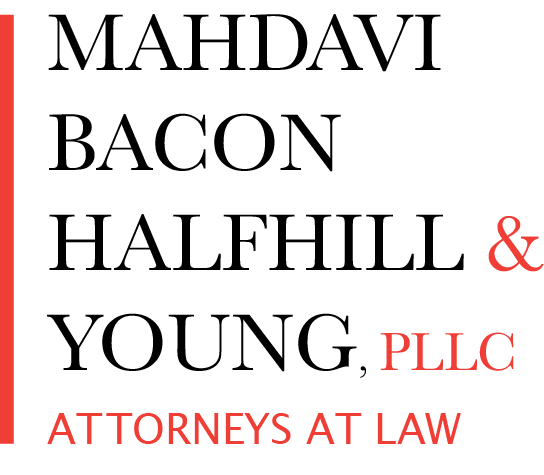
View our full summer business newsletter here.
Judge Blocks Corporate Transparency Act; Compliance Still Required
A federal judge in Alabama has ruled that the Corporate Transparency Act (CTA) is unconstitutional, marking a setback for the anti-money laundering law. However, businesses should still prepare to comply with the CTA’s beneficial ownership reporting requirements until the government’s appeal is resolved.
Earlier this year, U.S. District Court Judge Liles C. Burke sided with the National Small Business Association, a trade group plaintiff, in finding that the CTA represented an overreach of Congress’s powers.
The CTA, which took effect on January 1, 2024, requires corporations, LLCs, and other entities created by state filings to report personal details on their beneficial owners to FinCEN, the Treasury Department’s financial crimes unit. Over 32 million businesses are estimated to fall under the requirements.
Under the CTA, companies must provide FinCEN with their name, address, state of formation, and tax ID number, as well as the name, birthdate, address, and a copy of a government ID for every direct and indirect beneficial owner.
Hefty penalties apply for non-compliance. The goal is to prevent criminals from hiding behind anonymous shell companies.
Only NSBA Members Insulated
Burke’s ruling, while a blow to the CTA, has a limited scope for now. It only prevents the Treasury from enforcing the law against members of the National Small Business Association — the plaintiff business group. Most other companies are still required to report beneficial ownership to FinCEN by the year-end 2024 deadline.
The Department of Justice has appealed Burke’s ruling, and the case now moves to the 11th U.S. Court of Appeals. Some businesses plan to wait to see how the legal battle unfolds before investing heavily in compliance, given the deadline is not until December.
Corporate transparency advocates argue that the Alabama decision is an aberration that will be overturned. In a statement, Senator Sheldon Whitehouse (D-R.I.) called it “an extraordinarily narrow view of Congress’s constitutional powers that is unsupported by precedent.” He urged the government to “appeal quickly to correct the erroneous decision.”
For now, businesses should continue CTA compliance preparations while monitoring the ongoing court case. If the government fails to get the Alabama injunction lifted pending appeal, Burke’s ruling could open the door to further challenges. But currently, the vast majority of companies remain bound by the law’s reporting mandates.
Global Watchdog Upgrades U.S. Status
Despite the legal challenge, an international group has recognized the CTA as a beneficial move in fighting illicit financing. On March 26, 2024, the Financial Action Task Force (FATF) upgraded the United States to “largely compliant” based on the CTA rollout. The FATF creates international standards to prevent money laundering and terrorist financing.
Treasury Secretary Janet Yellen said the upgraded rating reflects “nearly a decade of hard work” to “stop the flow of dirty money through anonymous companies.”
The Treasury is conducting outreach to educate small businesses on the CTA’s requirements. Companies formed before 2024 have until January 1, 2025, to report beneficial owners, while those created in 2024 have 90 days after formation to file.
Lessons On ‘Clean’ And ‘Sustainable’ Claims
When it comes to “clean” and “sustainable” claims, can any brand truly walk the walk?
A recent case involving Amyris Clean Beauty sheds light on the growing scrutiny surrounding sustainability claims.
The National Advertising Division (NAD) took aim at some of Amyris’s marketing, highlighting the challenges companies face in balancing eco-conscious messaging with hard evidence.
NAD recommended that Amyris:
- Modify the claim “Clean ingredients and clean formulas – we ban over 2000 ingredients that are known to be toxic to you and the environment,”
- Discontinue the claim “keeping 2 million sharks every year safe from liver harvesting,” and
- Discontinue the claim “All of our ingredients are also ethically and sustainably sourced.”
Here’s what’s behind those decisions, with lessons for advertisers who want to make related claims: Clean ingredients: It seems NAD didn’t take issue with the company’s claim of using clean ingredients, but rather with the number of 2,000 ingredients the company avoided. In substantiating this claim, Amyris provided a list of ingredients that various countries, trade associations, and regulatory bodies had deemed harmful to human health. What was unclear, however, is whether all of those ingredients are typically used in cosmetic products.
The Federal Trade Commission’s (FTC) “free of” principles in the Green Guides say that “a truthful claim that a product, package, or service is free of, or does not contain or use, a substance may nevertheless be deceptive if the substance has not been associated with the product category.” Accordingly, NAD recommended the claim should be modified to reflect only cosmetic-specific ingredients.
Animal safe: Amyris claimed its plant-based squalane kept “2 million sharks every year safe from liver harvesting.” This was calculated based on 2012 data and an estimate on the global demand for shark liver oil. NAD objected, citing uncertainty as to the number of sharks killed and the amount of shark liver oil actually used by the cosmetic industry. Instead, NAD indicated the company could modify this claim to indicate that sharks are not harvested for squalene found in its products.
Sustainability: Regarding the claim “All of our ingredients are also ethically and sustainably sourced,” Amyris’s defense pointed to its Supplier Code of Conduct which requires suppliers to affirm they engage in ethical labor practices and sustainable sourcing. Here, NAD determined that a supplier code is more aspirational in nature and was not sufficient to substantiate the company’s claim.
NAD did, however, accept Amyris’s claim that its “100% sugarcane derived squalane is ethically and sustainably sourced.” In this instance, the company relied on certification from Bonscuro, a reputable third-party certification assessing the sugarcane sourcing and production process.
Precursor To litigation
The National Advertising Division (NAD) is the advertising industry’s self-regulatory body, operating under the umbrella of the Better Business Bureau. NAD reviews can be initiated through complaints from consumers, competing advertisers, or as part of NAD’s own monitoring program.
Although NAD’s decisions are not legally binding, advertisers that fail to comply with NAD’s recommendations can be referred to the appropriate regulatory agency (e.g., the FTC) for potential enforcement action.
NAD’s self-regulatory process is designed to be faster and less costly than litigation, while still providing a rigorous review of advertising claims. As the FTC prepares to update its Green Guides, more enforcement and litigation in this area is likely. Companies should carefully assess the explicitness of their claims and the quality of their substantiation to minimize risk.
Company Pays $2 Million Penalty Over Misleading ‘Made In USA’ Claims
Agricultural equipment manufacturer Kubota North America Corporation has agreed to pay a $2 million civil penalty, the largest ever in a “Made in USA” labeling case, to settle charges brought by the Federal Trade Commission (FTC). The FTC alleged that Kubota falsely labeled imported tractor parts as being made in the United States.
According to the FTC’s complaint, since at least 2021 Kubota labeled thousands of imported replacement parts for its tractors and agricultural equipment as “Made in USA,” even though they were wholly manufactured overseas. Kubota also allegedly failed to update labeling after shifting production of some parts from the U.S. to other countries, leaving them inaccurately marked as U.S.-made.
Under the settlement order, Kubota is prohibited from making unqualified “Made in USA” claims unless it can show that a product’s final assembly, all significant processing, and all or virtually all components are made in the U.S.
Similarly, a qualified claim, such as “Assembled in USA” is allowed only if assembly is substantial and the product undergoes substantial transformation in the U.S.
This case marks the latest in a string of FTC enforcement actions targeting false or misleading “Made in USA” claims. It serves as a reminder for companies to carefully review their U.S.-origin labeling practices.
Here are some key takeaways:
- The FTC is stepping up enforcement against deceptive “Made in USA” claims, and penalties are escalating.
- S.-origin claims should be made only if virtually all of the product is made and sourced domestically. Even a small amount of foreign content could trigger enforcement action.
- Shifting production overseas requires vigilance in updating marketing claims and labels.
- Having an effective program to validate U.S.-origin claims, especially as supply chains evolve, can help mitigate regulatory risk.
As the Kubota settlement shows, non-compliance with “Made in USA” labeling standards can carry a hefty price tag. If you’re making these types of claims, review your practices against FTC requirements to safeguard your company’s wallet and reputation.
FTC Increases Telemarketing Recordkeeping Requirements
Earlier this year, the Federal Trade Commission (FTC) announced significant updates to the Telemarketing Sales Rule (TSR) aimed at curbing deceptive and abusive telemarketing practices. The biggest concern for most telemarketers will be the expanded recordkeeping requirements. Additional updates address business-to-business (B2B) calls and charitable solicitations.
New record requirements
Previously, sellers or telemarketers were required to keep records for two years, tracking any 1) substantially different advertisements or telemarketing scripts; 2) lists of customers, prize recipients, and telemarketing employees involved in solicitations; and 3) records of informed consent.
The amended TSR increases the records telemarketers must maintain and extends the retention period from two to five years. Required records now include the above, plus:
- A copy of any prerecorded message used
- Detailed call records (numbers, dates, times, duration, disposition, transfers)
- Records showing an established business relationship with a consumer
- Records of the service providers used for outbound calls
- Records of the company’s internal do-not-call (DNC) registries
- Records showing which version of the FTC’s DNC registry was used
Compliance with the updated amendments will be required 180 days after publication in the Federal Registrar. Be sure to update your systems to capture and properly store this expanded information.
Limits on B2B calls
As part of the final rule, the FTC put new guardrails in place for business-to-business calls. The updated rule prohibits misrepresentations and false or misleading statements during B2B calls.
While scrupulous marketers are already taking steps to represent themselves fairly and accurately, businesses may want to review their scripts and practices in light of the update.
Look for any claims that could be construed as potentially deceptive or misleading and ensure sales personnel are trained on acceptable B2B telemarketing practices.
‘Previous Donor’ defined
Charities generally cannot use robocalls (prerecorded messages) to solicit donations from people with whom they haven’t had a prior relationship. The updated TSR places clearer limitations on allowable robocalls by defining a “previous donor” as someone who contributed to that particular charity within the past two years.
FCC on lead generators and text messages
In related news, the Federal Communications Commission (FCC) has adopted a new rule amending the Telephone Consumer Protection Act (TCPA) to close the so-called “lead generator loophole.” Now lead generators and comparison-shopping websites must obtain consumer consent for robocalls and robotexts one seller at a time, rather than a single consent applying to multiple sellers.
The new rules require clear disclosure to consumers that they will receive robocalls/robotexts from the specific seller, and the calls/texts must be logically and topically related to the website where consent was obtained. The rules also codify that do-not-call list protections apply to text messaging, making it illegal for marketing texts to be sent to numbers on the registry.
The Path Forward
Sales organizations will need to adapt quickly to these changing regulations. Audit your current practices, enhance recordkeeping, scrutinize B2B communications as well as your lead generating sources, and regularly monitor ongoing compliance.
When in doubt, consult legal counsel. Though it requires extra effort, adhering to the updated rules protects your business while upholding the integrity of telemarketing practices as a whole.

